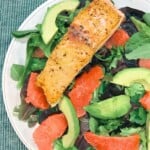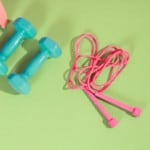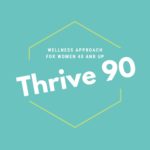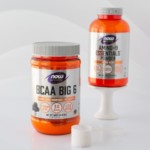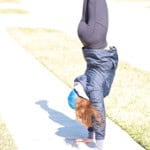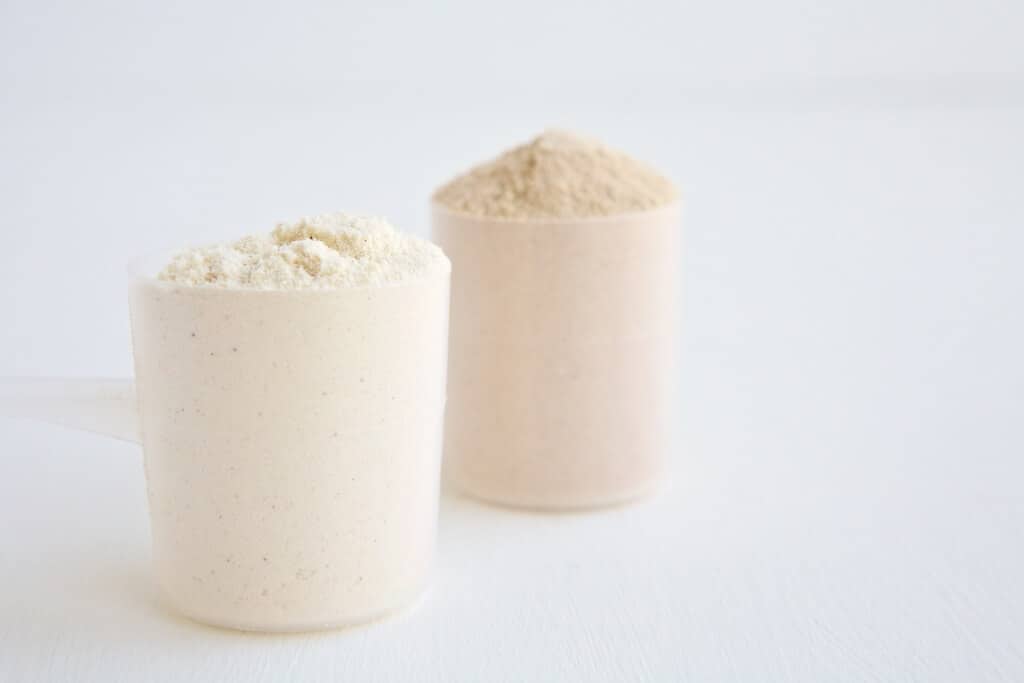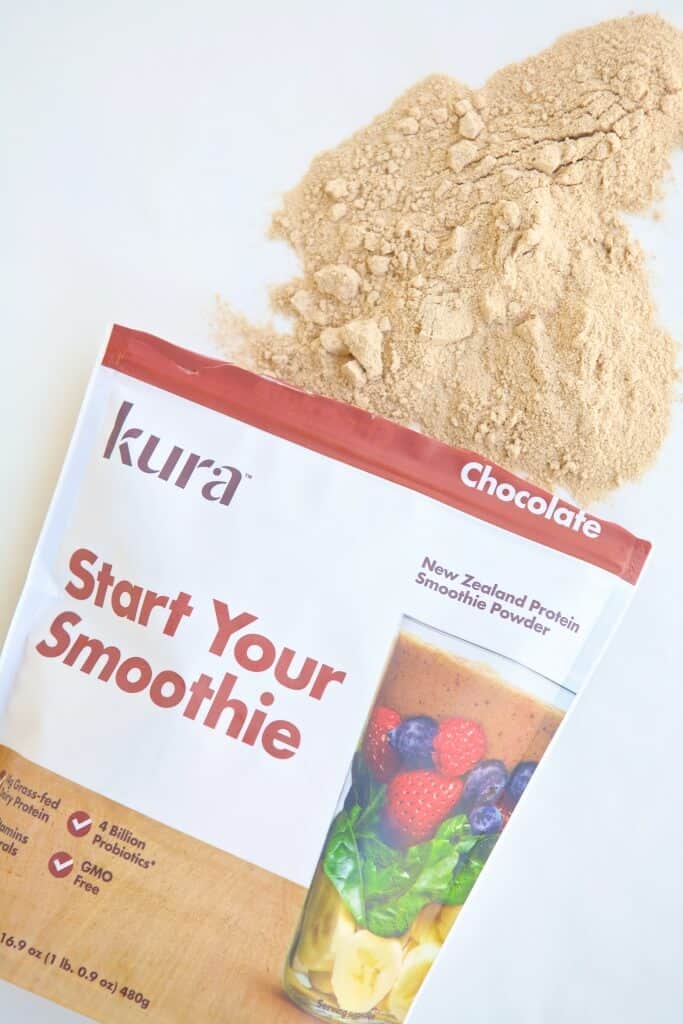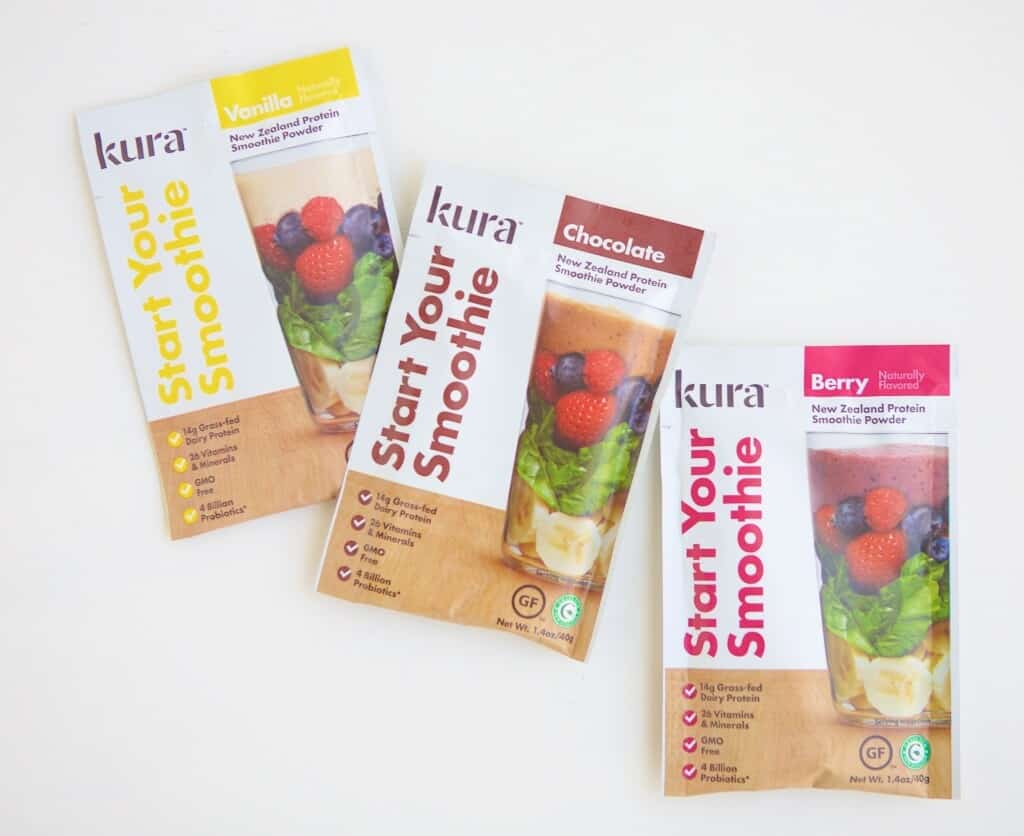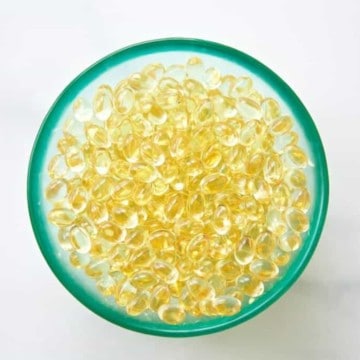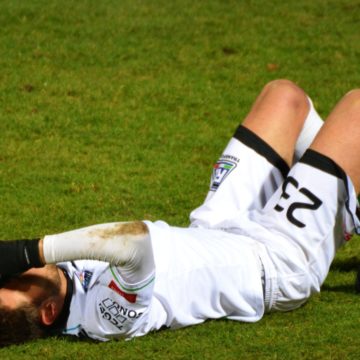
Should your young athlete be using a protein supplement? Find out the what, when & why of protein supplements & young athletes.
Thank you Kura for sponsoring this important discussion and appreciating my unique, professional opinion.
One of the most common sports nutrition questions I get, no matter the age group or sport, is should I be using a protein powder and if so, what’s the best one? This is especially true of young athletes, or rather, from the parents of young athletes.
As with a lot of my answers to questions like this, I respond with “it depends.”
Do we all need to be using a protein powder to be healthy or be the best athlete we can be?
No, we don’t.
It’s completely doable to reach your recommended protein intake through whole foods on a daily basis. That doesn’t mean it’s always easy, but I’ll get to that in a minute.
How much protein do you young athletes need?
First it’s important to determine how much protein you or young athlete needs. A young athlete, for our discussion, is a competitive person 18 years of age or younger. It is someone who trains or competes at least 3 days a week, but likely more. The recommendation is a wide range between 1.0 grams/kg/day and 1.7 grams/kg/day, with those in intense training programs and desiring to gain muscle being in the higher end.
Protein recommendation for non-active adolescents and children: 0.8 to 1.0 grams/kg/day
Protein recommendation for athlete adolescents and children: up to 1.7 grams/kg/day
(To convert your weight in pounds to kilograms, simply divide your weight by 2.2)
The Challenge for young athletes
The challenge for many young athletes is those who are trying to gain strength, and therefore need a higher amount of total protein, but their schedule or lifestyle makes it difficult.
Let’s look at an example, using a hypothetical football player from Coach’s team:
6:00 am 16 year old John wakes up, the latest he can sleep in if he doesn’t want to be late to school. He gets dressed, eats breakfast and leaves to catch the bus at 6:25am.
6:30 - 7:00 am He rides the bus and arrives at school at 7am.
7 - 7:15 am John hurries to get to his locker, say hi to friends and get to class.
7:15 am - 10:30 am He has 2-3 academic periods with about 5 minutes in between classes to possible eat something.
10:35 - 11:05 am Lunch
11:10 - 1:45 pm After lunch he has an academic period, then finishes the day with weight lifting, a class that all football players take.
1:45 - 2:45 pm School ends after weights and John prepares for football practice and has position meetings to review game film.
2:45pm - 5:15pm Football practice.
5:30 - 5:55 pm John has a 25-minute ride home and arrives famished.
6 pm - 7 pm He scarfs down dinner and probably has seconds. John showers and prepares to start homework.
7 - 9 pm Homework
9 pm He is once again hungry and wanders into the kitchen looking for a “snack” (aka another meal). He might eat some leftovers, if there’s anything left, have a bowl of cereal and milk, or grab a box of cookies and dig in. He finishes the day watching TV and texting friends.
10/11pm Goes to bed
This could be the scenario for any athlete, any sport or any gender. When I was a high school volleyball player, this was my story except I worked out before school. Maybe your situation is with an even younger athlete who plays one to two sports after school or has tournaments all weekend long.
The point is it’s tricky for young athletes to eat a high quality diet, providing all the nutrients and protein they need to rebuild, repair and stay healthy. Between commuting, multiple practices, or the constraints of the school day, there’s just not a lot of time or opportunity to properly fuel, especially when it comes to protein.
The right time to use a protein supplement
This is a scenario where I might advise my client and their family to consider incorporating a protein supplement and/or nutrition shake.
Here are the most common reasons I suggest a young athlete try a protein supplement:
- They struggle to eat enough QUANTITY of food during the day.
- They struggle to eat a high QUALITY diet.
- Their goal is to gain strength and power as a result of hard training, which requires a much higher protein intake than what they are currently consuming.
- They struggle to stay healthy, either from injury or respiratory infections.
What to avoid
Now, there are a lot places where you can go and buy a protein supplement. Honestly though, you take on a lot of risks when you buy your protein supplement and I just don’t trust most of them. There are many protein products that are advertised to entice young, muscle-hungry athletes, promising HUGE, instant results.
As a good rule of thumb, I recommend young athletes avoid most products you find in supplement stores. They often contain ingredients/nutrients that are not tested for effectiveness and safety. Unfortunately, many of them are laced with banned substances that do in fact give an instant result of some sort, but a price. (Let me remind you all of what happened with the University of Florida quarterback, who took an over the counter supplement and tested positive for performance enhancing drugs. It actually happens. All. The. Time.)
How to use a protein supplement
Protein supplements in and of themselves are not magical for building strength or muscle. Don’t forget that! It is something that can help you build muscle if you are training and working hard in the gym and at practice. But if my description above sounds like you or your child, here’s some ways you can include a protein supplement in your/their day:
- Make a smoothie the night before to grab and go for breakfast in the morning. Put it in a disposable cup so it’s easier to take and throw out.
- Take a single packet of powder to mix with water right after a morning or afternoon workout to refuel and prep your body for practice.
- Mix some powder with water or milk on the way home from practice to help refuel and take the edge off a massive appetite.
- Make an evening smoothie or milkshake with powder to get extra nutrients and help reduce a super strong appetite.
The Make Healthy Easy protein supplement checklist:
So what do you want to look for in a protein supplement? Good question. Here’s my checklist:
- Basic Nutrition is well balanced. If it is mainly a protein supplement (little to no carbs) then it contains a reasonable amount of protein like 10-20 grams per serving. Consuming 50 grams of protein in one smoothie is way too much for most bodies to process at one time. If the product is a nutrition shake, then it contains protein, carbs and maybe some fat. This will likely give more calories overall, which is not a bad thing.
- Ingredients are recognizable and whole food based. No artificial ingredients, excessive amounts of vitamins and minerals, or unnecessary additions that could do more harm than good.
- Protein is one of the first two ingredients. Ingredients are listed in order of concentration on a food label so if you are buying a “protein” supplement, then it should be the first ingredient.
- Fiber is included. Most young athletes don’t get enough fiber so this is a really helpful addition for overall health.
- Is low in sugar and does not use artificial sweeteners.
- Vitamin and minerals are at 100% or less. Since everyone eats a varied diet, you do not need to meet all your nutrient requirements from one product. A product that contains 1000% and more of nutrients does NOT mean that it is better for you.
- Super foods added are a plus, especially when kids are not likely to eat them naturally. Superfoods are, but not limited to, probiotics, omega-3 fatty acids, greens, fiber, or antioxidant rich foods (not just vitamins) like berries.
- Tastes good, mixes well, and doesn’t cost an arm and a leg.
Ask anyone who knows me well and they will tell you that I am VERY SKEPTICAL about supplements in general so it’s rare that I find a company that passes my test. While there are several brands of protein supplements that I have given my stamp of approval to, I recently discovered a new brand, Kura, that I am excited about, especially for young athletes.
Kura is a US company that uses high quality, grass-fed New Zealand milk as the base for their “Smoothie Powder”. It has no added sugar, all natural ingredients, is gluten free, and here’s the big win for me -- contains an omega-3 blend and 4 billion probiotics.
{I haven’t made it to discussing probiotics here on Make Healthy Easy yet, but here’s what you need to know in a nutshell -- we all need them (pretty much) every day for optimal health and vitality. Kura is a delicious way to get them in daily.}
The nutrition facts for Kura pass all my criteria:
140 calories per serving, 2.5 g fat, 4 grams of fiber, no added sugar but 14 grams of naturally occurring sugar, and 14 grams of protein.
Kura also passes some of the important tests that it tastes great, mixes beautifully in our morning smoothies and is very reasonably priced (one of the perks of being sources from dairy). We have been enjoying all the flavors (vanilla, chocolate and berry) but I think my personal favorite, for smoothies anyway, is the berry. Although yesterday I made the boys a “milkshake” with Chocolate Kura, cashew milk, banana and ice and they were pretty darn happy. (I was too!)
You can buy Kura here on Amazon or at the Vitamin Shoppe and have it shipped right to your door. That is super easy which is super appealing to me!
So let’s conclude this protein supplements & young athletes discussion with the main take-aways:
- Everyone does not need a protein supplement to be healthy or a great athlete.
- Protein supplements can be helpful for active adults and kids in the right circumstances.
- All supplements are NOT created equal, therefore use my criteria checklist to find a good one, like Kura.
If you still have a question, leave me a comment below.
Fueling Young Athletes for Greatness,

